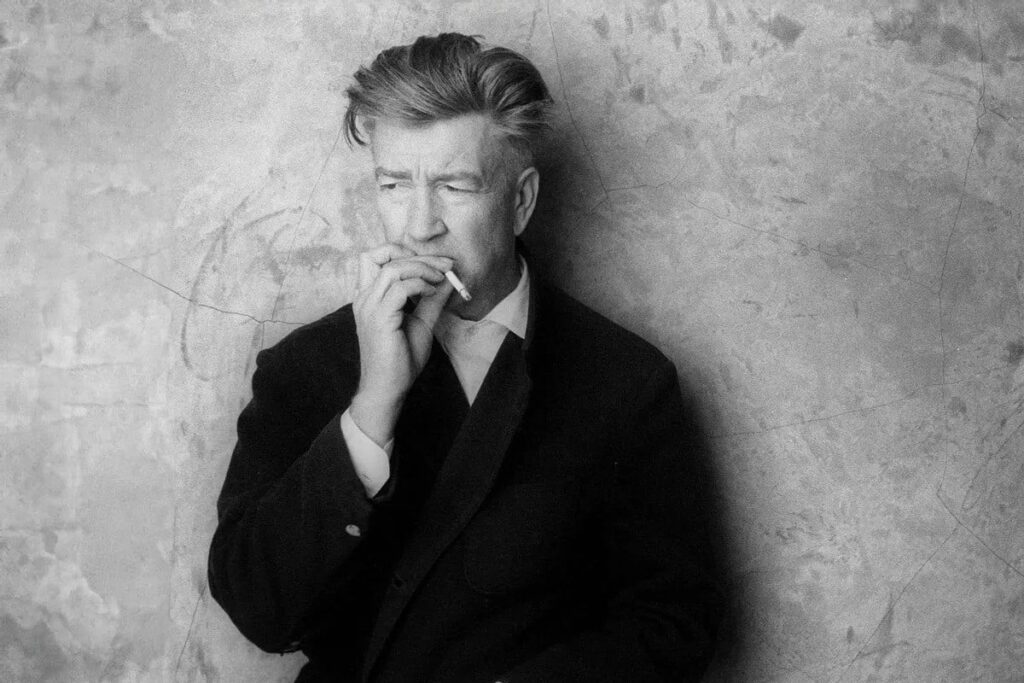PUBLISHED
January 19, 2025
You either loved him or you hated him. Well his movies anyway. But few directors have come close to leaving the singularly unique impact David Lynch left on cinema in what feels now, to a fan, a not so extensive filmography.
Here’s a fun fact, even if you didn’t like or never watched any of his surreal and unsettling movies. If you find yourselves a fan of what’s known as ‘Prestige Television’ or ‘Peak TV’ – stuff like Breaking Bad or The Sopranos or any show that gets top billing on a major streaming service these days – you owe it, in part to David Lynch. More specifically, you owe it in part to the series Twin Peaks, created by Lynch with writer Mark Frost, that unsettled and puzzled audiences when its original two seasons ran from 1990 to 1991, and that unsettles and puzzles audiences even now.
Before Twin Peaks, now described on Wikipedia as a ‘surrealist mystery-horror drama television series’, most TV fare in the US was rather ‘formula-driven’ and separated into neat and tidy genres. You had your soap operas, your sitcoms ‘filmed before live studio audiences’, your procedurals, so and so forth.
Lynch and Frost took elements from many of those – the melodrama of soaps, the campiness of sitcoms, the crime mystery plot device of police and detective shows – and married it to the director’s own brand of surrealist horror, the best glimpse of which till then was in his debut independent feature Eraserhead. Certain motifs that the director displayed in that film would feature in most of his output, particularly the emphasis on the ‘strangeness’ of everyday items, appliances and phenomenon, like steam and smoke, and ‘electricity’.
The result is what I believe remains Lynch’s magnum opus; a show that to this day is unlike any other. Speaking of which, someone once asked me about a series recommendation and was thoroughly displeased when I suggested Twin Peaks. In my very biased opinion, as absurd as it is to call an exercise in creativity the ‘best’, Twin Peaks is very much the best thing to have ever graced the TV screen. Why, you may wonder? Because by and large I think only Lynch could have come up with something like it. Only he ever did, with movies like Blue Velvet, Mulholland Drive and Lost Highway.
In the decades since they were first screened, fans have continued to hunt for meaning and answers in Lynch’s filmography, which eludes interpretation with every watch. They would often hound Lynch in life for a definitive take on his movies, something that would always elicit an amusing and matter-of-act retort: “It’s all there on the screen!”
Lynch himself would also ask something along the lines of why people want answers in art when they accept that life, more often than not, has no answers and a whole lot of questions. After long wild goose chases and deep dives into various rabbit holes, I too have come to the conclusion that Lynch’s works are best experienced by focusing on the emotions they evoke rather than searching for ‘meaning’. There is always a skeleton of a plot or story, but being fixated on the details in search of some clue or Easter egg that can be the key to solving the mystery is a mistake and misses the point. Like a dream, what Lynch was trying to explore through his work would vanish in a puff of smoke if you think about it too long. But let yourself be swept along for the ride and it makes perfect ‘sense’, in a manner of speaking.
There is, however, a theme that connects the most Lynchian of Lynch movies and Twin Peaks as well. It’s something I realised only recently. In Blue Velvet and in Twin Peaks, the protagonist is what Americans would call a ‘good old boy’, a ‘boy scout’ or ‘All-American’; the epitome of (White) American masculinity; someone raised on ‘good values’, wholesomeness and faith in his country and his fellow man. That protagonist, in the pursuit of what Superman comics popularised as ‘truth, justice and the American way’, comes across the seedy and sometimes esoteric underbelly of society, and on some occasions the ethereal nature of reality.
The theme, I think, that links many of these works is the disorientation and dissonance most of us experience growing up. When we find out our parents aren’t perfect, our neighbours aren’t always neighbourly, our teachers are only doing it for the money, our government doesn’t always have our best interests at heart and our heroes are flawed beyond our wildest imaginations. Or, as in Twin Peaks: “The owls are not what they seem” and that “love is not enough.”
Lynch would take that feeling of unsettlement, confusion, even betrayal and extend it to what can only be described as ‘spiritual horror’. Especially in the case of Twin Peaks, where Lynch took the trope of the ‘upstairs, downstairs’ drama to a mystical realm – there may or may not be beings with great power, but if there are, then their inner machinations are likely to be as opaque to us as ours are to them.
The acclaimed filmmaker’s family confirmed his death this week at the age of 78, leaving fans of his, like yours truly, gutted and floored. One always hoped for one more work from the director (or yet more Twin Peaks, in the futile hope that he would finally give us closure). It doesn’t help that the CEO of Netflix Ted Sarandos revealed soon after news of Lynch’s death that the director had been working on a series for the streaming service. Oh what could have been…
But alas, it’s all the more reason to appreciate and celebrate the ‘visions’ that he gave us. The statement his family put out on Lynch’s Facebook page has the best advice for his admirers: “There’s a big hole in the world now that he’s no longer with us. But, as he would say, ‘Keep your eye on the donut and not on the hole.'”
As a fan, meanwhile, the best tribute came from actor Kyle MacLachlan, who Lynch discovered and cast for the 1984 Dune movie, his only major Hollywood production. Lynch and MacLachlan also worked together on Blue Velvet and Twin Peaks. “David was in tune with the universe and his own imagination on a level that seemed to be the best version of human. He was not interested in answers because he understood that questions are the drive that make us who we are,” the actor wrote in his touching eulogy for the filmmaker on social media.
We also have a poignant last message from the man himself, clips of which resurfaced following his passing. Speaking to his eponymous foundation’s Meditate America event in September last year, Lynch left us with this parting prayer: “May everyone be happy. May everyone be free of disease. May auspiciousness be seen everywhere. May suffering belong to no one. Peace. Jai Gurudev.”










